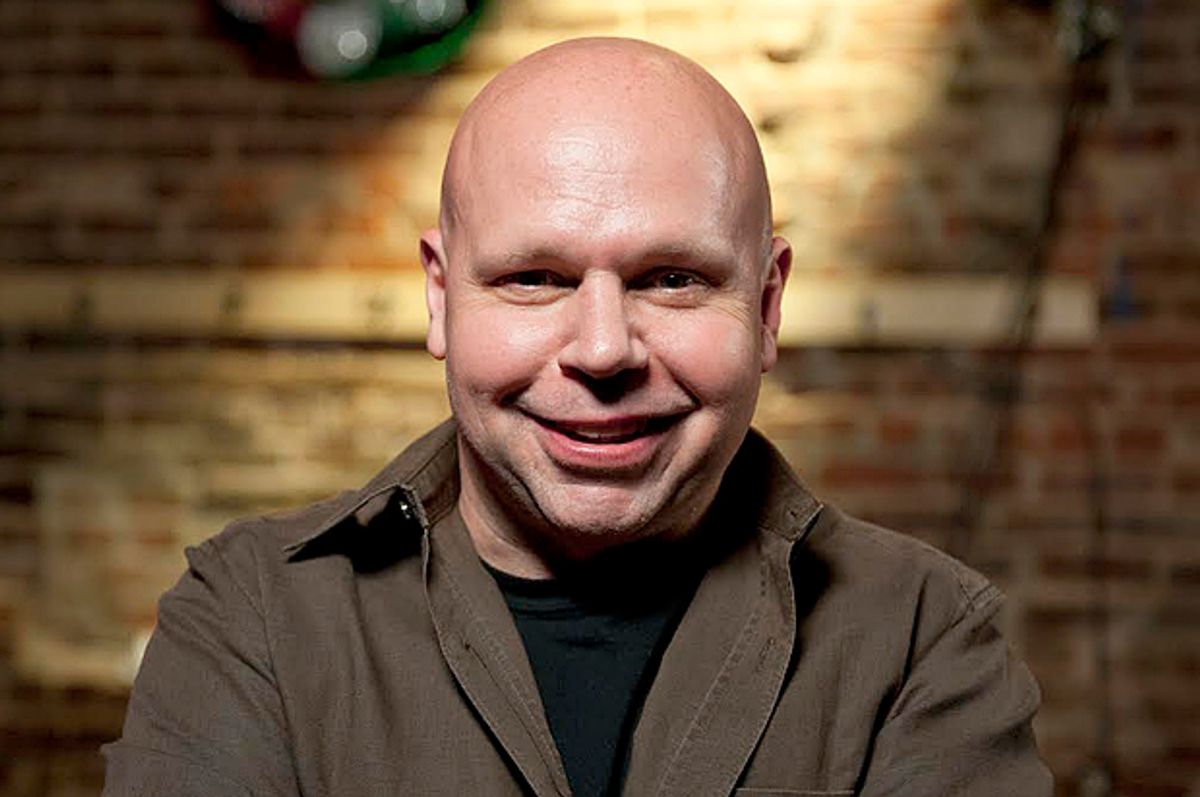A self-described Uncle Fester look-alike with a voice like a “bullfrog with bronchitis,” Matt Pinfield somehow became one of the defining personalities of classic-era MTV (that is, when it still played music videos). Pinfield was oddly telegenic simply because he was so unabashedly autodidactic and always thrilled to be in the seat across from an unusually well-behaved Lou Reed or Oasis.
In the mid-'90s, Pinfield was all over MTV. He started hosting the network's alternative program "120 Minutes" in 1995 and then branched out to helm an eclectic mixtape of shows: "MattRock," "Pinfield Suite," "Pinfield Presents," "Rocks Off," "Say What?," "MTV Live" and more than 100 specials. He was the Matt of the "Total Request Live" segment "Stump Matt."
Pinfield recently published a frank, funny new memoir, "All These Things That I’ve Done: My Insane, Improbable Rock Life," named for the song The Killers wrote about him and co-authored with Mitchell Cohen.
Here, Pinfield — who is now, among many other things, a DJ at KFOG-FM in San Francisco — discusses his brain on music and why a trip to the drugstore is never just a trip to the drugstore.
One of the many interesting things you write [about] in the book is that sense of being a surrogate for all the fans who are as impassioned as you are but you’re the one who is in the room with these rock stars. Your job is to ask the questions that the fans would ask if they were there. But at the same time you’re still that fan, too. You’re still that kid. What’s that like?
I still feel like I still get, that you know? When I hear something that just absolutely moves me, it reminds me of the exhilarating feeling that you have when you love an artist or you love a song or something really excites you.
It used to irritate me when I would see someone doing an interview with an artist [and the journalist] obviously didn’t do any homework and wasn’t passionate. I think about when I was growing up, there was so little access as compared to the way things are now. So I depended on magazines like Rolling Stone and Creem and Rock Scene.
So you said if you ever got a chance to get in the room, too, you would know your shit, basically?
Yeah, I always would. Bowie once said to me, “One of the things I love about you is how much you, you know, you know about and care about music and you remembered things about my career that I forgot.”
And I said, “Well, David, you are my gateway. You are my gateway.”
Can we talk about taste for a second? Because you write that at a very early age, you knew what you liked [in a record] and you would hide the records you didn’t like under your refrigerator.
It’s true, man!
Chronologically, as you write in the book, you [had] the privilege of growing up when you did and at a very young age being exposed to these amazing Beatles and Stones and Dylan and Velvet Underground records, but at the same time you had to know that they were worth your time without anyone telling you.
In many ways those things are immediate. You react emotionally to the sound or the melody. But I also have to give my older brother and sister credit for having the records that I could go steal out of their bedroom and play over and over again. But I do believe that your taste is part of your journey. We didn’t have a lot of money and I would have dreams about being able to go through the record store and get every record when I was a little kid. But I could recognize stuff that’s not good.
Taste will take you places. It took you far. Why do you think, as you write, that a lot of rock fans feel “different and isolated?”
Well, all I know is I’ve used music as therapy, you know? It was self-medication to get through the rough times. I’ve dealt with depression and music has always been the most healthy way to fight it.
You write about getting the host job on MTV’s "120 Minutes" and how you eventually got hired because of what you knew and now how you looked. And the artists clearly respected you. It was kind of a triumph for the rock fan. No disrespect to Dave Kendall.
I always joke about how amazing it was when a short, bald, chubby guy from Jersey [got that job]. I wasn’t a pretty boy. I think I was . . . It was beautiful. It was a major triumph.
Now, Matt, if you’re in a drugstore and hear a muffled bass line to a song or you hear a piece of music coming through a wall, say a drumbeat, do you go crazy if you can’t identify it immediately? Or can you always identify it?
Sometimes it takes a minute if it’s very low. [Laughs]

Shares